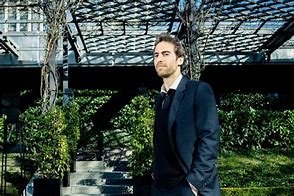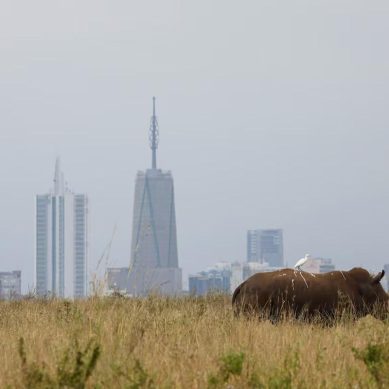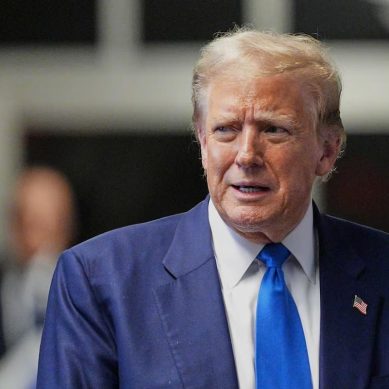
Mathieu Flamini sweeps into the St Pancras Renaissance Hotel in London. He is here to talk about his life in elite sport and the biotech industry, and when Flamini talks – at full speed and with full conviction – you want to listen.
The trouble is, the hotel lobby is packed with a cacophony of guests, staff and people here for a conference.
I already failed in my enquiry for a quieter spot. Flamini, however, flashes a look that never takes no for an answer. Off he goes and arranges access to a closed restaurant. He then convinces someone to bring coffee. Voila! The vignette is a reflection of how he lives his life. He is a force of nature intent on making things happen.
The vocational leap in Flamini’s story is astonishing. He patrolled midfield for Olympique de Marseille, Arsenal and AC Milan and was still a committed, active player in Serie A when an engineer told him about green chemistry. He immediately wanted to get involved.
“I decided to build a company that would help end chemical pollution,” he says. He is now CEO of GF Biochemicals, an organisation driving for more sustainable products in our everyday lives.
“Everyone knows about consumer goods we use every day,” he explains. “Shampoo, shower gel, deodorant, detergent to clean the house, paint in our homes and on our things – all of those consumer goods are made of chemical ingredients.
When you use shampoo, if you look at the back you see very complicated names of ingredients which are mixed together in order to make the shampoo. What people need to know is most of those ingredients, unfortunately, come from the oil industry or what we call the petrochemical industry. What we have discovered over the past few years is that many of these ingredients are harmful to the planet and for people.
“For example, when you take a shower, your shower gel or shampoo is made from ingredients which are not biodegradable and those ingredients basically go to sewage and accumulate in the water and never decompose. Every day the cream you put on your face contains chemicals being absorbed by your skin, which is your body’s biggest organ.
If you clean your house with toxic products – your kids are walking on the floor, you cut bread with a knife, whatever – there is a contamination of these harmful ingredients.
“We manufacture bio-based ingredients using agricultural waste and plant-based products for the consumer goods industry. The shampoo we use, the paints we use, the detergent we use to clean the house, are safer for people and more sustainable for the environment.”
The Flamini who scurried around the midfields of Europe – pointing, cajoling, encouraging, tackling, full-on – is approaching a subject as monumental as climate change with the same unquenchable passion.
“Some of my colleagues like to joke with me,” he says, “‘Finally, you have your first real job’.”
It all begins in the city of Marseille. Flamini was born and raised there, growing up near the seaside. His father loved the ocean and was a diver. Sometimes he took his son with him deep into the water. What does it feel like down there?
“Peace. Freedom. An escape from the whole world,” Flamini says. “Diving with my father was a beautiful experience.” Even then he was aware of plastic and chemical pollution in the sea.
But of course, his first love was on land. Football is an obsession in Marseille, and Flamini’s zest was noticed early on. His school was right next to the club’s youth development centre and he joined them at the age of five.
“I was extremely energetic,” he recalls. “I remember my parents coming to pick me up from school and every day I jumped on a bike to go to the playground and said ‘Catch me’. Football was a way of expressing myself and getting this energy out, otherwise I probably would’ve been out of control.”
When he reached his late teens, he had a choice between football and education. He combined a law degree with representing Marseille in the first team. The university was lenient and allowed him to miss a substantial amount of classes. “But I still had to go to 25 per cent of them, and when I asked Marseille if I could move some of the training to go to the classes they asked me to make my choice. Actually, it was simple,” he says, laughing.
He was the only one from his year group to make it as a pro. “It’s rare that someone starts from the age of five and goes all the way to the first team,” he says. “When OM play, people who can’t afford to buy food go to see the game. It is one of the pillars of the city of Marseille. I grew up in that culture, with that feeling, and being able to play for Marseille is a pride I carried with me every single day of my teenage life.”
There was some surprise, then, that he moved on at a young age, rejecting Marseille’s contract offer and instead joining Arsenal at the age of 20. The French club were not pleased. Flamini felt it was something he had to do.
“I was playing defensive midfield and they bought another player from Bordeaux and I didn’t feel like a priority there,” he says. “When I met with Arsene (Wenger), he made me feel like I was one of his priorities. It was time for me to leave. On one side I was pushed out and, on the other side, I had the pull of the opportunity presented by Arsene. Arsenal at the time was very French with a lot of players there in the national team. It was a big club on the European scene.”
His fellow Frenchman and former Arsenal team-mate Robert Pires remembers Flamini as being “very smart” and tells The Athletic: “In the locker room, he would speak up to say, especially, what was wrong on the field. He likes to talk with everyone. He is a good team-mate, Mat. As they say: you can go to war with him. And it was quite visible that he was already thinking about his future.”
At Arsenal, Flamini discovered something that chimes with one of his key principles: surround yourself with good people. Find your clan. It is what he calls his “wolf pack” and his was a young, skilful midfield quartet formed with Cesc Fabregas, Alexander Hleb and Tomas Rosicky.
“We were super close, both on and off the pitch. This was our wolf pack. We took care of each other, we looked after each other, we protected each other in a midfield which was very technical but also very offensive. My job was to play further back and make sure everybody was protected,” he explains.
Flamini talks with rapid intensity. The only time he pauses is to reflect on the time that team relished a title charge, only to fall painfully. In some ways, 2007-08 was not unlike the situation Arsenal are in now: a young team riding the crest of a wave. They were top of the league with 10 games to go. It hit the rocks when Eduardo, their prolific scorer, had his leg badly broken in a game at Birmingham City.
“It was a very emotional year,” Flamini recalls. “We were a young team in every way. We were all very close to each other and we grew up together as men, as human beings. We had a very strong lead that year in the Premier League, and in the Champions League won memorably (2-0) at (AC) Milan and then went to Liverpool.
- The Athletic report / By Amy Lawrence











